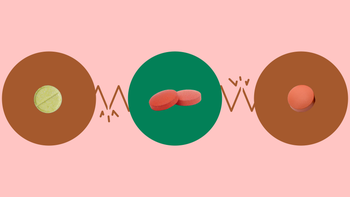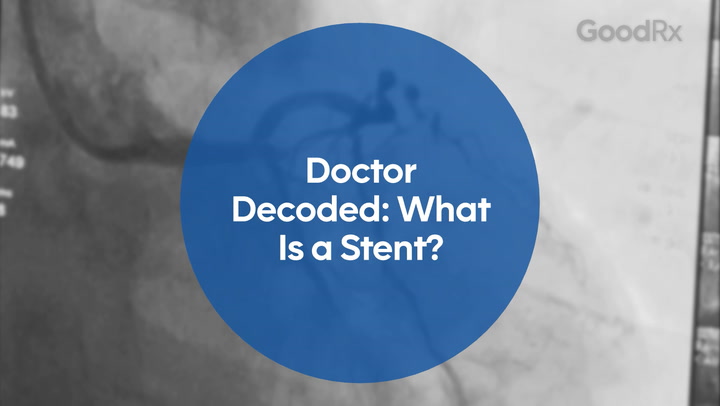
Heart Attack vs. Heart Palpitations — What’s the Difference?
Key takeaways:
Heart attacks and palpitations can both feel scary, but they are two different things.
Heart attacks happen when the blood supply to a part of the heart is cut off due to a blockage in an artery.
Palpitations are a feeling that your heart is beating very fast. It can be worrisome, but it’s not usually a sign of a heart attack.

If you get a sudden discomfort in your chest, you might be left wondering — and worrying — if you could be having an emergency with your heart. A heart attack can cause discomfort in the chest, but it doesn’t usually cause palpitations. Palpitations on their own are often not serious. Where it gets murky is when chest discomfort and palpitations occur together and with other worrying symptoms.
Here, we’ll try to tease out the differences between the two conditions, where they overlap, and when to see medical attention.
What are heart palpitations?
Palpitations are an awareness of your heart beating. Some people describe them as a flutter, while others may describe the feeling of a racing or pounding heartbeat. Palpitations are commonly felt in the chest, but it’s also possible to feel your heart pounding in your throat, neck, or even your ear.
Prescription Savings Are Just the Beginning
See what other benefits you qualify for—from cashback cards to cheaper insurance.

Mostly, heart palpitations come on out of the blue, last a few seconds or minutes, and then pass. They can come on at any time, whatever you’re doing.
Our heart rate is not something most of us are aware of. Palpitations occur when our heart rate becomes abnormal enough for us to notice it.
What causes heart palpitations?
Many situations, medical conditions, and triggers can cause palpitations.
Sometimes, palpitations are a normal response to a situation, such as jitters, fear, and panic or anxiety attacks. It’s also normal to have a faster heart rate if you’re exercising, pregnant, or going through menopause.
Caffeine, alcohol, smoking, and using recreational drugs can all cause palpitations, too. Medications can cause palpitations as well — common examples are albuterol, a treatment for asthma, and pseudoephedrine, a decongestant.
But there are also more serious causes of heart palpitations:
An irregular heartbeat (arrhythmia), such as atrial fibrillation
Hypertrophic cardiomyopathy, a type of genetic disease that causes thickening of the heart muscle
Heart failure
Heart valve disease
Hyperthyroidism, an overactive thyroid gland
Anemia
Sometimes people describe palpitations as an extra heartbeat. Most people experience occasional extra beats, called premature ventricular contractions or premature atrial contractions, without even noticing them. They are generally not dangerous, though they can be treated with heart medications like beta blockers if they are bothersome.
Can heart palpitations lead to a heart attack?
Palpitations can technically lead to a heart attack if the heart is racing so fast and for so long that the heart isn’t able to pump properly and becomes starved of blood and oxygen. Most of the time, though, heart attacks are caused by a blockage in the coronary arteries supplying the heart muscle.
How to know when heart palpitations are a sign of a heart attack
Most heart palpitations are not life threatening, but you should know the clues that could mean you are having a heart attack.
You may be having a heart attack if you feel chest pain, chest pressure, or chest tightness and:
Shortness of breath
Nausea
Sweats
In a heart attack, chest discomfort can spread to the shoulders, arms, neck, or jaw as well. These symptoms are not a simple case of palpitations, and you should seek emergency medical help or call 911.
Can a heart attack cause palpitations?
Though most heart attacks don’t cause palpitations, it is possible. If the electric circuits in the heart are affected in a heart attack, the in-built pacemaker of the heart could become dysregulated, and abnormal heart rhythms could kick in.
Unfortunately, abnormal heart rhythms that can cause palpitations during a heart attack are very dangerous and often life threatening. Ventricular tachycardia is one of the heart rhythm disturbances associated with heart attacks, and it is responsible for what is known as sudden cardiac death.
The bottom line
Heart palpitations can feel scary, but they’re usually not serious. In some cases, they can be a sign of an underlying heart disorder.
Heart palpitations don’t usually cause heart attacks, and heart attacks don’t usually cause palpitations. If you’re having palpitations but you also have signs of a heart attack, such as chest discomfort; arm, neck, or jaw pain; nausea; sweating; or breathlessness, then it’s always safest to call 911 and get emergency medical help.
Why trust our experts?


References
American Heart Association. (2016). Premature contractions - PACs and PVCs.
American Heart Association. (2016). What is atrial fibrillation (AFib or AF)?
Bhar-Amato, J., et al. (2017). Ventricular arrhythmia after acute myocardial infarction: ‘The perfect storm’. Arrhythmia & Electrophysiology Review.
Centers for Disease Control and Prevention. (2022). Heart attack symptoms, risk, and recovery.
Clementy, N., et al. (2018). Benefits of an early management of palpitations. Medicine.
National Health Service. (2022). Heart palpitations.

























